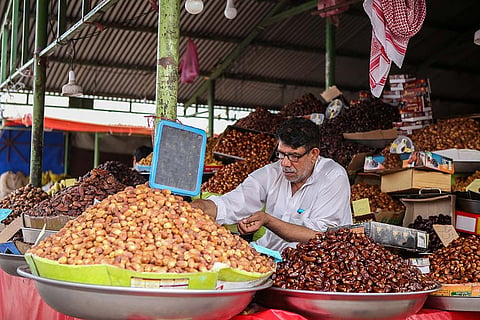Effects And The Affected
Amritsar Faces Cost Of Distrust, Why 9,354 Families Feel Robbed
How political decisions by India and Pakistan have crippled a livelihood system based on cross-border business
- 9,354 families directly affected in Amritsar because of breadwinner’s dependence on bilateral trade
- Nearly Rs 30 crore was being added to the local economy of Amritsar every month; the estimate is that two-thirds of it is lost
- Loss to the tune of Rs 75 lakh every day
***
For over a decade, he had almost guaranteed employment at least once in two days. But today Michael, a porter at the Attari-Wagah border in Amritsar district of Punjab, has to fight every day to get work. The life of porters, traders, truckers and their whole ecosystem has come to a halt since August 9, 2019, when Pakistan suspended trade with India a few months after India hiked import tariffs on products from the neighbouring country to 200 per cent. With the loss of nearly Rs 30 crore that was being added to the local economy of Amritsar every month, lives, livelihood and a border trade economy have been crippled.
“Before the trade stopped, I was earning around Rs 15,000 per month. Now I earn just Rs 1,000-2,000. We have to look for new employment opportunities, though there are not many options,” says Michael, describing the situation of around 2,500 families of porters and helpers. “Many are quitting the vocation due to uncertainties caused by political decisions.”
In 2018-19, bilateral trade between India and Pakistan was valued at US$ 2.6 billion—India’s exports was worth US$ 2.06 billion and imports worth US$ 495 million. The Indian government notification hiking the import duty levied on all goods originating in or exported from Pakistan was issued on February 16, 2019, two days after the attack on a CRPF convoy at Pulwama attack. This led to a significant drop in Pakistan’s exports. Amritsar had a complete ecosystem dependent on the cross-border trade. This included transportation, traders, porters, female workers and custom house agents. According to a study by the Bureau of Research on Industry and Economic Fundamentals (BRIEF), over 9,000 families were affected by the cessation of trade between the two countries.
“We cannot deny that livelihood has been severely impacted,” says Rajdeep Uppal, an Amritsar-based trader who heads the local chapter of the Indian Chamber of Commerce. “There is no clarity on when the trade will resume. This has forced many out of this border-trade ecosystem. Prices too have gone up. For example, the price of cement for the consumer shot up from Rs 250 to Rs 400 for a 50-kg bag, while those imported from Pakistan cost around Rs 175 per bag. Almost all of north India depends on cement from Pakistan, as is the case with other products too that used to come from the neighbouring country.”

Dates on sale at a market in Islamabad, Pakistan.
A trader in the border region of Amritsar points out that women living in slums earned around Rs 300-400 a day by hand-cutting dry dates from Pakistan. “Not even one-fourth of them are at work now,” he says.
The story of truckers is no different. Amrit Singh used to own six trucks until 2019, each worth around Rs 25 lakh. “I bought the trucks when trade was flourishing, but had to let them go. Three trucks were surrendered to the financers as I wasn’t able to pay the EMIs, two were sold, and the only one left is not in a good condition. I work as an assistant accountant to supplement my income,” he says. Many of his friends and others in the transportation business on the border have met the same fate. Amrit is a member of the Attari Truckers’ Union, which had around 450 trucks plying between India and Pakistan until last year.
Cotton exports are among the worst affected. With Pakistan deciding to completely suspend bilateral trade with India, it is sourcing cotton from alternative markets like the US, Australia and Egypt, and yarn from Indonesia and Central Asian countries, at higher prices.
According to trade experts, there has been a loss in business, rise in prices, lack of alternative source of livelihood as well as an expected increase in bank defaults following the decisions of both the countries. They suggest measures such as a policy framework on trade between India and Pakistan as key to addressing the trust deficit and misapprehensions on the economic front, non-tariff barriers, anti-dumping complaints, besides lack of connectivity, technical and operational knowledge gaps and limited direct interaction.
“Facilitating direct trade between India and Pakistan is critical to supporting the ecosystem of Amritsar’s border economy on which more than 9,000 families depend,” says Nikita Singla, associate director, BRIEF. With Pakistan allowing Afghanistan exports to enter India at the Attari-Wagah border from July 15, there is a new ray of hope. “Although it’s a good first step towards regaining the vibrancy of the border economy timed with the 10th anniversary of the Afghanistan Pakistan Transit Trade Agreement, a handful of Afghan trucks cannot save the checkposts from being deserted and ensure that porters earn their livelihood,” says Singla.